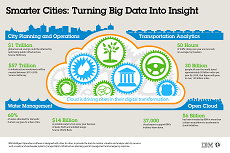October 18, 2013
RICS is first professional body to introduce BIM standard
 The Royal Institution of Chartered Surveyors (RICS) has become the first global professional body to introduce the first recognisable building information modelling (BIM) standard. Employers and clients are struggling to find industry accepted criteria on which to base knowledge of practitioners’ BIM skills, while BIM competent professionals lack a single indicator that will demonstrate their abilities to the sector. This has resulted in different assessment methods being used across the industry. RICS’ BIM Manager Certification aims to assure contractors, consultants and investors that the professionals and firms delivering construction and infrastructure projects have the relevant knowledge, experience and skills to implement BIM at an industry tested and approved level. More →
The Royal Institution of Chartered Surveyors (RICS) has become the first global professional body to introduce the first recognisable building information modelling (BIM) standard. Employers and clients are struggling to find industry accepted criteria on which to base knowledge of practitioners’ BIM skills, while BIM competent professionals lack a single indicator that will demonstrate their abilities to the sector. This has resulted in different assessment methods being used across the industry. RICS’ BIM Manager Certification aims to assure contractors, consultants and investors that the professionals and firms delivering construction and infrastructure projects have the relevant knowledge, experience and skills to implement BIM at an industry tested and approved level. More →























September 27, 2013
What’s wrong with adopting a more positive approach to work and workplaces?
by Mark Eltringham • Comment, Facilities management, Public Sector, Workplace, Workplace design
[embedplusvideo height=”160″ width=”220″ standard=”https://www.youtube.com/v/u6XAPnuFjJc?fs=1″ vars=”ytid=u6XAPnuFjJc&width=220&height=160&start=&stop=&rs=w&hd=0&autoplay=0&react=1&chapters=&notes=” id=”ep2086″ /]
Has there ever been a UK government more interested in the workplace than this one? Most of it has been about cutting costs of course, so the majority of announcements emanating from the Cabinet Office have been about procurement, design and environmental performance. David Cameron even at one point announced that he wanted to measure people’s happiness. The questions needed to work out how happy we are proposed by the Office for National Statistics as a result would have had a very familiar feel for anybody who has ever completed a workplace satisfaction survey even if they miss the most blindingly obvious point that when you’re skint and in mortal fear of losing your job, most other things about work lose their lustre.
More →